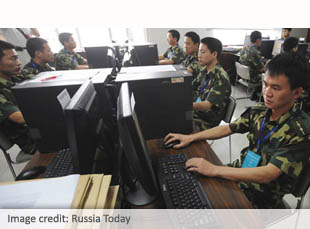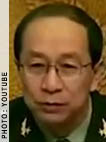Senior Chinese Army general accused of corruption found dead
November 29, 2017 Leave a comment
 A senior Chinese People’s Liberation Army (PLA) military official, who was seen as a close ally of President Xi Jinping, has allegedly committed suicide, according to Chinese state media. Zhang Yang was one of the most high-profile generals in the Chinese PLA. His rise to power after Xi became president of China was meteoric. He was appointed member of the Central Military Commission (CMC) of the Communist Party of China, which exercises political supervision of the Chinese armed forces. In addition to his role in the CMC, Zhang directed the General Political Department of the PLA’s Ground Force, which made him the top political commissar in the army.
A senior Chinese People’s Liberation Army (PLA) military official, who was seen as a close ally of President Xi Jinping, has allegedly committed suicide, according to Chinese state media. Zhang Yang was one of the most high-profile generals in the Chinese PLA. His rise to power after Xi became president of China was meteoric. He was appointed member of the Central Military Commission (CMC) of the Communist Party of China, which exercises political supervision of the Chinese armed forces. In addition to his role in the CMC, Zhang directed the General Political Department of the PLA’s Ground Force, which made him the top political commissar in the army.
However, in August of this year Zhang suddenly stopped making public appearances. An article soon appeared in Sing Tao, a pro-Beijing newspaper in Hong Kong, alleging that the general had been questioned by anti-corruption investigators as part of President Xi’s nationwide campaign against sleaze. At around the same time, Hong Kong media said that President Xi would soon announce sweeping changes in the makeup of the CMC. It was also announced that General Zhang would step down from his director’s role in the army’s General Political Department. But media in Beijing reported nothing about Zhang, and there was speculation that he may have been imprisoned or even executed. The rumors intensified after September 1, when a front-page article in Sing Tao claimed that he had been dishonorably discharged from the PLA and imprisoned on charges of “serious violations of [Chinese Communist] Party discipline”.
Media in Beijing remained silent until Tuesday of this week, when a report issued by Xinhua News Agency, China’s government-run news agency, said that the former general had been found dead in his home in Beijing. According to the report, Zhang was found dead by a relative on Thursday, November 23. The brief report also mentioned that Zhang had been questioned by authorities in recent months in connection with “bribery and large-scale property crimes”. The Chinese Communist Party has not commented on Zhang’s death.
► Author: Ian Allen | Date: 29 November 2017 | Permalink














